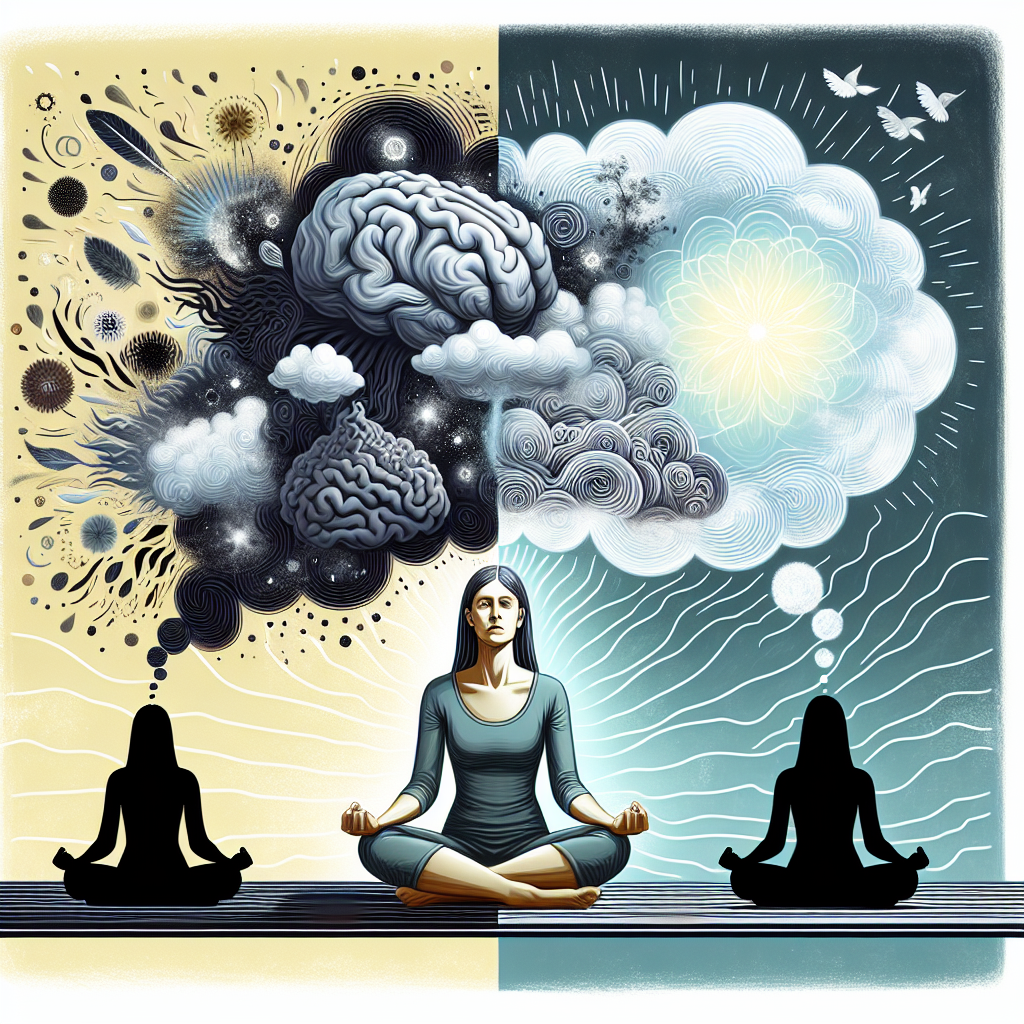
How meditation reduces stress
Understanding Stress and Its Impact on Daily Life
In today's fast-paced world, stress has become an unwelcome companion in our daily lives. From work pressures to personal responsibilities, the demands we face can often feel overwhelming. Prolonged exposure to stress can lead to various health issues, including anxiety, depression, and even physical ailments such as cardiovascular diseases. Understanding how to combat this pervasive emotional strain is crucial to maintaining both mental and physical well-being.
What is Stress?
Stress is a natural response to challenging or threatening situations. It involves a complex interaction of psychological and physiological processes that prepare the body to confront or flee from perceived dangers. While some level of stress can motivate and improve performance, chronic stress can hinder our ability to function effectively.
Signs and Symptoms of Stress
Recognizing the signs of stress is the first step toward managing it effectively. Common symptoms of stress include:
- Difficulty sleeping
- Increased irritability
- Headaches or migraines
- Digestive issues
- Fatigue
- Difficulty concentrating
If these symptoms persist, it is essential to explore healthy coping mechanisms to reduce stress levels.
The Role of Meditation in Stress Reduction
Meditation has been practiced for thousands of years across various cultures, primarily as a path toward spiritual enlightenment. However, modern science has explored and confirmed the benefits of meditation for mental health, particularly its ability to reduce stress and promote relaxation.
What is Meditation?
Meditation is a mental exercise that involves focusing the mind, often through the use of breathing techniques, visualization, or repetition of a mantra. The practice aims to cultivate a state of calm alertness and enhance overall well-being. Several forms of meditation exist, including mindfulness, transcendental meditation, and guided imagery.
How Does Meditation Work?
The process of meditation engages the brain in a way that counteracts the effects of stress. Here’s how meditation works:
- Reduces Overactive Thinking: Meditation helps quiet the persistent stream of thoughts often associated with stress.
- Enhances Emotional Regulation: Regular practice can improve mood and resilience in the face of stress.
- Promotes Relaxation: Deep breathing techniques practiced during meditation activate the body's relaxation response.
- Improves Focus: Meditation can enhance concentration, making it easier to tackle stressful tasks.
Scientific Evidence Supporting the Benefits of Meditation
Several studies have substantiated the claim that meditation can significantly reduce stress levels. For example:
- A review published in the journal Psychosomatic Medicine found that mindfulness meditation reduces the physiological markers of stress, such as cortisol levels.
- Research from the University of Massachusetts showed that participants who engaged in mindfulness meditation displayed lower mood disturbances and greater emotional regulation.
- Another study in JAMA Internal Medicine indicated that mindfulness meditation could reduce anxiety, depression, and pain.
Incorporating Meditation into Your Daily Routine
To reap the benefits of meditation, consistency is key. Here are some practical tips for integrating meditation into your life:
1. Start Small
If you’re new to meditation, begin with short sessions of just five to ten minutes. Gradually increase the duration as you become more comfortable with the practice.
2. Find a Comfortable Space
Create a dedicated space for meditation that is quiet, comfortable, and free from distractions. This environment will help signal to your brain that it’s time to unwind.
3. Set a Routine
Try to meditate at the same time each day. Whether it's in the morning, during your lunch break, or before bed, establishing a routine can make it easier to stick with the practice.
4. Use Guided Meditations
Apps and online resources offer guided meditations that can help you learn the process. Various platforms provide options tailored for specific needs, including reducing stress.
5. Embrace Mindfulness in Daily Activities
Incorporate mindfulness into everyday tasks, such as eating or walking. Pay attention to your senses and the present moment, which can help alleviate stress throughout your day.
The Broader Benefits of Meditation Beyond Stress Reduction
While the primary focus here is on how meditation reduces stress, it's essential to consider the wider range of benefits that regular practice can provide.
Improved Physical Health
Engaging in meditation can have profound effects on physical health, including:
- Lower Blood Pressure: Meditation can help reduce hypertension by promoting relaxation.
- Enhanced Immune Function: Studies have suggested a positive relationship between mindfulness meditation and improved immune responses.
- Better Sleep: Many practitioners report improved sleep quality as a result of reduced mental chatter at night.
Enhanced Emotional Well-Being
Regular meditation practice fosters a greater sense of emotional balance and resilience by enhancing self-awareness and reducing negative thought patterns.
Increased Creativity and Clarity
Meditation can free the mind from clutter, allowing ideas to flow more freely. Many individuals report heightened creativity and improved problem-solving abilities.
Strengthened Relationships
As meditation promotes patience and empathy, it can positively influence personal relationships. Improved emotional regulation can lead to healthier communication and understanding with others.
Conclusion: A Pathway to Tranquility
Incorporating meditation into your routine offers a powerful tool for managing stress effectively. Its multifaceted benefits extend beyond stress reduction, positively influencing both mental and physical health. As you embark on this journey toward calmer living, remember that meditation is a practice that requires time and commitment. With persistence, you’ll soon find yourself not only reducing stress but also enhancing your overall quality of life. Recognizing the profound impact meditation can have can empower you to take charge of your mental well-being and embrace a more balanced, peaceful existence.
"Meditation is the journey from sound to silence, from movement to stillness, from a limited identity to unlimited space." – Sri Sri Ravi Shankar
By Guest, Published on October 22nd, 2024